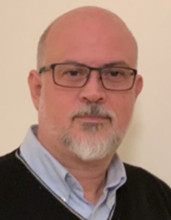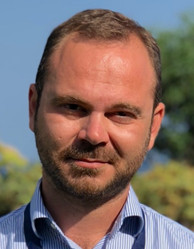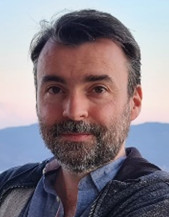Description
First Responders (FRs) today save lives, risking their lives, in adverse conditions and in many cases using obsolete or with yesterday’s technology. They work under enormous pressure, with obsolete protective gear, in hazardous environments and often in areas where communication infrastructures have been disabled. On the other hand, more and more people enjoy the advantages of smart interconnected devices and systems, able to offer automation, comfort, safety and efficiency at affordable prices. It is obvious that the benefits of the benefits of Internet of Things and of smart devices, should be offered to the heroes that at the risk of their health and life, protect ours. This Special Session is dedicated to the assistance that Internet of Things, Smart Devices and Artificial Intelligence can offer to First Responders and Rescuers, and create a safer, more efficient and technologically advanced operating framework. Contributions on proposals, research results, applied technologies and pilot results over the use of IT in enhancing the capabilities of First Responders will be presented, covering topics such as sense augmentation, enhanced sensorial input, precise positioning, cognitive support, multi-sense XR interfaces, and robust communications. Contributions coming both from Public and private initiatives, academic research and especially from consortia of partners working towards the implementation of integrated frameworks are welcome, while reporting of results in pilots and trials in realistic conditions will be appreciated.
- Wearable technologies
- Training tools and applications
- Devices and tools to enhance human sensing
- Cognitive load management
- Situational Awareness
- Operating teams’ management
- Robust communications in adverse environments
- Technologies for victim detection
- Tools to enhance safety and efficiency of FRs
- Cognitive load management.
- Intelligence amplification
- Use of drones and robots during rescue operations
- Field sensors and electronics
- Sensor data collection, processing and management
- Enhanced and extended environments
- Enhancing the operational capacity of rescue animals
- Crisis management tools and platforms
- Decision support tools and platforms
- Modelling tools for faster & more efficient decision making.
Important Dates:
- Paper submission:
13 June 2022August 1st, 2022 - Acceptance Notification:
8 July 2022August 16th, 2022 - Camera-Ready Paper Submission Deadline:
31 July 2022August 31st, 2022
Paper should be six (6) pages in length and follow the instruction provided for the main Conference. The conference allows up to two additional pages for a maximum length of eight (8) pages with payment of extra page charges once the paper has been accepted.
Chairs
Dr. Charalampos Z. Patrikakis (University of West Attica)

Charalampos Z. Patrikakis is a Professor at the Dept. of Electrical and Electronics Engineering of UNIWA on the Design and Implementation of Interconnected Electronic Systems and Services, with emphasis on data collection and processing. He is a founding member of THINGENIOUS, a spinoff company of UNIWA. He has been adjunct lecturer at NTUA and AUA, while he has worked for 20 years as a researcher at various laboratories of ICCS, NTUA and AUA. He is currently the Director of CoNSeRT lab, which researches on AI, Cloud Computing and Networking, Web and Internet of Things and Blockchain technologies and for the design and implementation of mobile and network applications and services. He is also the Director of the MSc Program “Artificial Intelligence and Deep Learning”. His research experience includes participation in in over 50 research projects, from which in more than 20 he has been involved as technical coordinator or principal researcher. He has over 200 publications in chapters of books, international journals and conferences, and has 2 contributions in national legislation. He has been a member of the editorial committee of more than 60 issues in international journals and conferences, and has acted as editor in the publication of special issues of international journals, conference proceedings volumes and coedited three books.. He is currently AEiC of IEEE IT Professional Magazine, responsible for Special Issues, IEEE Senior Member of IEEE, IEEE Computer Distinguished Contributor, Member of the Technical Chamber of Greece, and counselor of the IEEE Student Branch of UNIWA.
Dr. Dimitrios Zarpalas (Centre for Research and Technology Hellas )

Dimitrios Zarpalas is a Senior Researcher (grade C) at the Information Technologies Institute (ITI) of the Centre for Research and Technology Hellas (CERTH). He holds the diploma of Electrical and Computer Engineer from Aristotle University of Thessaloniki, A.U.Th, an MSc in computer vision from The Pennsylvania State University, and a PhD in medical informatics (Health Science School, department of Medicine, A.U.Th). He joined ITI in 2007, as a Research Associate. His main research interest are on 3D/4D computer vision and machine learning, such as tele-immersion applications: 4D reconstruction of moving humans, their “hologram” compression and transmission in real-time; 3D motion capturing, analysis and evaluation; 3D medical image processing, shape analysis of anatomical structures; He has (co-)authored more than 110 papers in peer reviewed international journals, conference proceedings, and books (including one IEEE Distinguished paper and one IEEE conference best paper award). He has been involved in more than 18 research and development projects, having served as Technical Coordinator in 4 of them. Currently he is the Technical Coordinator in H2020 “RESCUER” which aims to offer sense augmentation solutions to First Responders and Rescuers.
Dr. George Boustras (European University Cyprus)

Georgios Boustras was born in Athens in May 1973. George is a Professor in Risk Assessment at European University Cyprus, Director of the Centre of Risk and Decision Sciences (CERIDES – Excellence in Innovation and Technology), Visiting Researcher at the National Observatory of Athens and Visiting Professor at University of Haifa. George is a PhD in Probabilistic Fire Risk Assessment from CFES at Kingston University London (2003), he was Honorary Research Fellow at CPSE at Imperial College London (2003 – 2005), and KTP Research Fellow at FSEG at the University of Greenwich (2009). He sat at the Management Committee of Secure Societies – Protecting Freedom and Security of Europe and its citizens of “HORIZON 2020” for 7 years. George was a Member of the Socio-Economic Assessment Committee (SEAC) of the European Chemicals Agency (ECHA) for 6 years. He was Advisor for Natural Catastrophes to HE the President of the Republic of Cyprus, Mr Nikos Anastasiades. Among other public duties, he was appointed by the Ministerial Council of the Republic of Cyprus to Head the Special Task Force that overlooked the modernization of the Fire Services. He was hired by World Bank to contribute to the modernisation of licensing services provided by the Fire Service of the Hellenic Republic. The President of the Republic of Cyprus appointed him, as Vice President in the Energy Strategy Council. He consulted the Ministry of Defence of the Republic of Cyprus in the Risk Assessment of Unexploded Ordnance as part of Gas Exploration. George is Editor-in-Chief of Safety Science (Elsevier, IF 4.788) and Member of the Editorial Board of Fire Technology (Springer Nature), the International Journal of Emergency Management and International Journal οf Critical Infrastructure (both Inderscience). He (co-)supervises 5 PhD students; 5 of his students are now PhD’s.
Dr. Christos Ntanos (National Technical University of Athens)

Dr Christos Ntanos is a senior researcher and holds a Bachelor in Electronic and Computer Engineering, a Master in Electronic and Computer Engineering obtained at the University of Birmingham, UK, and a Master’s in Business Administration (MBA) from the Athens University of Economics and Business. He holds a PhD from the School of Electrical and Computer Engineering at the National Technical University of Athens (NTUA). Dr Ntanos is very experienced in managing ICT and cross-cutting research and implementation projects, including the coordination of ones under the Horizon 2020 programme. In this capacity, he is coordinating “Search and Rescue: Emerging technologies for the Early location of Entrapped victims under Collapsed Structures & Advanced Wearables for risk assessment and First Responders Safety in SAR operations”. He is the coordinator of the MES-CoBraD project to build a multidisciplinary expert system for the assessment and management of Complex Brain Disorders and the coordinator and scientific manager of “Sphinx – A Universal Cyber Security Toolkit for Health-Care Industry”, which aims at assessing and reducing cyber risks in hospitals and care centres to protect privacy/data/infrastructure. He has also coordinated ChildRescue, which involves NGOs from Greece and Belgium to enhance the processes of locating and tracking missing children and children in migration. Dr Ntanos has significant expertise in the management, design, and development of ICT solutions, analogous and parametric estimating of IT and database systems, context awareness, risk management, Decision Support Systems, Business Process Reengineering, Knowledge Representation, eGovernment and eParticipation. He has a sixteen-year experience contributing in various research and implementation projects from the managerial, as well as the design and implementation perspectives.
Please submit your paper for this Special Session using the link to eWorks:
If you have any questions, please contact Dr. Patrikakis Charalampos: bpatr@uniwa.gr


